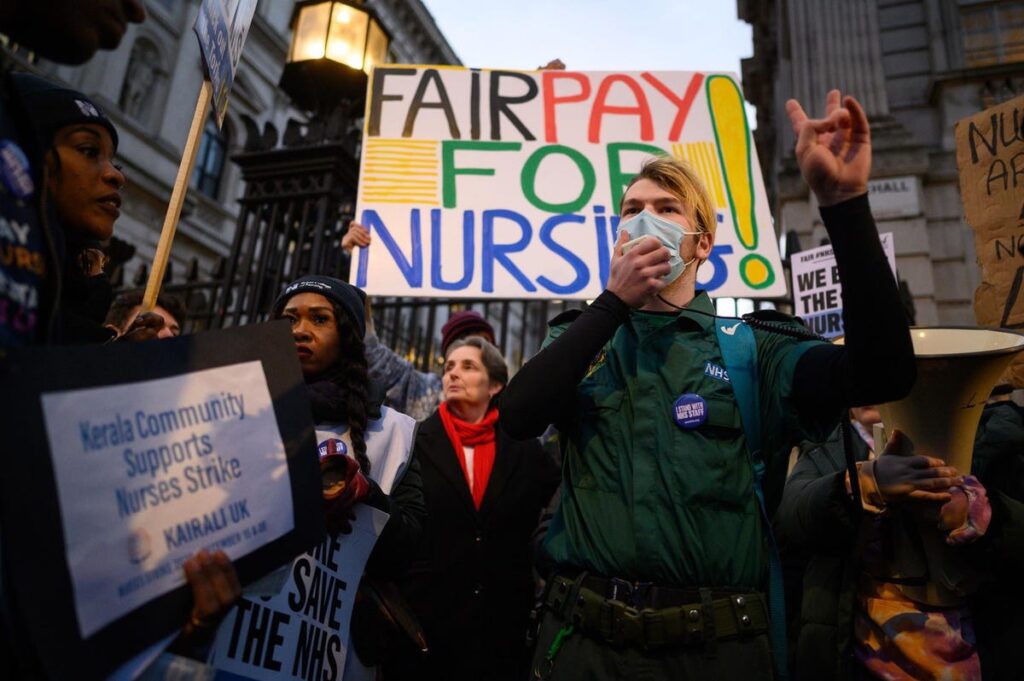LONDON, UNITED KINGDOM – DECEMBER 20: An ambulance paramedic makes a speech as NHS workers and … [+]
England’s nurses will halve a planned 48-hour strike after losing a legal battle in the country’s high court.
A union leader behind the strike called the government’s decision to take legal defeat “the darkest day” so far in a pay dispute that’s lasted since autumn.
Government ministers argued the original planned strike dates — April 30 to May 2 — fell outside the union’s legal window to strike.
Nurses with the Royal College of Nursing had initially voted to engage in strike action on November 2. Under British law, this gave them a mandate of six months to perform walk-outs.
Ministers argued the last day of the upcoming strike would have fallen the day after this window, and took the union to court over the plans.
On Thursday, RCN general secretary Pat Cullen said the union had lost its case, and announced the strike would now end at 11.59 p.m. local time on May 1.
Cullen said in a statement: “The full weight of government gave ministers this victory over nursing staff. It is the darkest day of this dispute so far — the government taking its own nurses through the courts in bitterness at their simple expectation of a better pay deal.”
She suggested the case would embattle nurses currently preparing to vote on whether to strike for a further six months. The union will also have to pay £35,000 towards the government’s legal fees.
“Nursing staff will be angered but not crushed by today’s interim order,” Cullen said. “It may even make them more determined to vote in next month’s reballot for a further six months of strike action. Nobody wants strikes until Christmas — we should be in the negotiating room, not the courtroom today.”
Health secretary Steve Barclay said that he “firmly” supported the right of employees to strike “within the law”. But, he added, “the government could not stand by and let plainly unlawful strike action go ahead.”
“Both the NHS and my team tried to resolve this without resorting to legal action, but unfortunately… we took this step with regret to protect nurses by ensuring they are not asked to take part in an unlawful strike.”
Nurses, ambulance staff and other public sector healthcare workers have been engaged in industrial action since late last year.
Union leaders say that pay has failed to keep pace with soaring inflation, resulting in real-terms pay cuts for hundreds of thousands of employees.
Poor pay, they argue, is making it harder to recruit and retain staff, resulting in an overstretched workforce that’s struggling to keep up with rising demand for health services.
The government recently offered some workers, including nurses, a pay rise of 5% and a one-off bonus payment in a bid to end ongoing walk-outs.
The deal split unions, with members of the Royal College of Nursing voting to reject it earlier this month, despite Cullen’s recommendation to accept it.
Barclay said on Thursday: “The government wants to continue working constructively with the Royal College of Nursing, as was the case when we agreed the pay offer that was endorsed by their leadership.”


